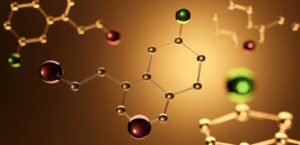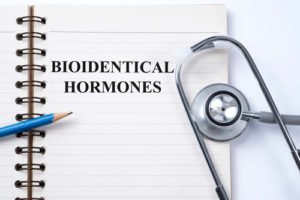
If you have been prescribed thyroid medication and decide to stop taking it or not to take it, the side effects of not taking thyroid medicine is a continuation or return of symptoms.
An Overview of the Thyroid Gland and Hormones
The thyroid is a small gland at the base of your throat that is supposed to produce the thyroid hormones thyroxine (T4) and Triiodothyronine (T3). Another word for Thyroxine is tetraiodothyronine.
The thyroid gland collects iodine from the food and water we consume and converts it into thyroid hormones. Most of the hormones the thyroid produces are T4, which has little effect on the rate of one’s metabolism. After the body breaks T4 down into T3 and circulates it freely through the bloodstream, this “free” hormone activates the metabolism.
The thyroid hormones in your thyroid gland are not active. Only the free hormone is active, meaning that it has an impact on your body’s systems. Active thyroid hormones can affect things like:
- Heartrate
- Growth
- Fertility
- Digestion
- Skin
- Metabolism
As a person ages, the thyroid gland gets smaller and sits lower in the neck. Disorders of the thyroid become more prevalent as we get older. Some medical experts say that everyone over the age of 65 should get tests to check how much thyroid-stimulating hormone they have in the bloodstream. These specialists recommend repeating the testing every five years.
A person could have an underactive thyroid (hypothyroidism) or an overactive thyroid (hyperthyroidism) and not get it diagnosed and treated. It is easy to mistake the symptoms of a thyroid disorder for indications of aging or other conditions. Without treatment, an older adult can feel miserable and have a hard time performing everyday tasks.
For a free consultation, call (305) 682-1818
Symptoms of Low Thyroid
If your thyroid gland does not make as much of the thyroid hormones as it is supposed to or your body cannot use its thyroid hormones correctly, you might have an underactive thyroid, also called hypothyroidism. Typically, the condition develops gradually over time. People get used to feeling worse and assume that the signs are from getting older and not thyroid problem symptoms.
You might have low thyroid levels if you experience these symptoms:
- You feel worn out frequently, even after getting eight hours of sleep.
- You gain weight while practicing the same eating and activity habits as when you weighed less.
- Your muscles are weak.
- Your muscles are stiff, tender, or ache.
- You have swollen, painful, or stiff joints.
- You are more sensitive than usual to cold temperatures.
- Your skin is dry.
- Your voice sounds hoarse.
- You have constipation.
- Your menstrual periods are irregular or abnormally heavy.
- Your hair is thinning.
- Your face gets puffy.
Also, people with hypothyroidism can have a slow heart rate, depression, higher than usual blood cholesterol levels, and memory issues. If left untreated, a person with low thyroid can develop significant health challenges, like heart disease, infertility, joint pain, and obesity.
Causes of Hypothyroidism
Your thyroid does not work correctly if the systems within your body become out of balance. Hormones are highly responsive to changes within the body. Some of the most common factors that can lead to low thyroid are:
- Thyroid surgery: if you had to have all or part of your thyroid gland removed, your thyroid might stop making thyroid hormones or not make enough of them. People in this situation need to take thyroid hormone replacement for the rest of their lives.
- Medical treatments: radiation therapy to the head or neck can cause your thyroid gland to stop producing enough hormones. Also, if you underwent treatment for hyperthyroidism, the treatment might have lowered your thyroid’s ability to produce hormones to too low a level. In this situation, the person can develop permanent hypothyroidism.
- Medications: many medications can cause hypothyroidism. If you have signs of low thyroid and you take medication, you should ask your doctor if the drug can affect the thyroid. For example, people who take lithium are at risk of developing hypothyroidism.
Less common factors that can lead to low thyroid are things like a pituitary disorder or an iodine deficiency.
Click to contact our specialist today
What to Do If You Have Low Thyroid Symptoms
We use specialized diagnostic testing that we developed to get a clear assessment of your thyroid hormone levels. If our tests reveal that you have low thyroid hormone levels, we will design a low thyroid treatment program for you. All our patients get customized treatment plans tailored to their individual needs. Your plan might include modifications of your supplements, lifestyle, and diet, as well as prescription bioidentical thyroid replacement hormones.
You can call HealthGAINS at (305) 912-8828 to get started. One of our professional advisers will be happy to talk to you at no charge. You could start feeling better and enjoying your life again within a few short weeks.
Call or text (305) 682-1818 or complete a Free Consultation Form








